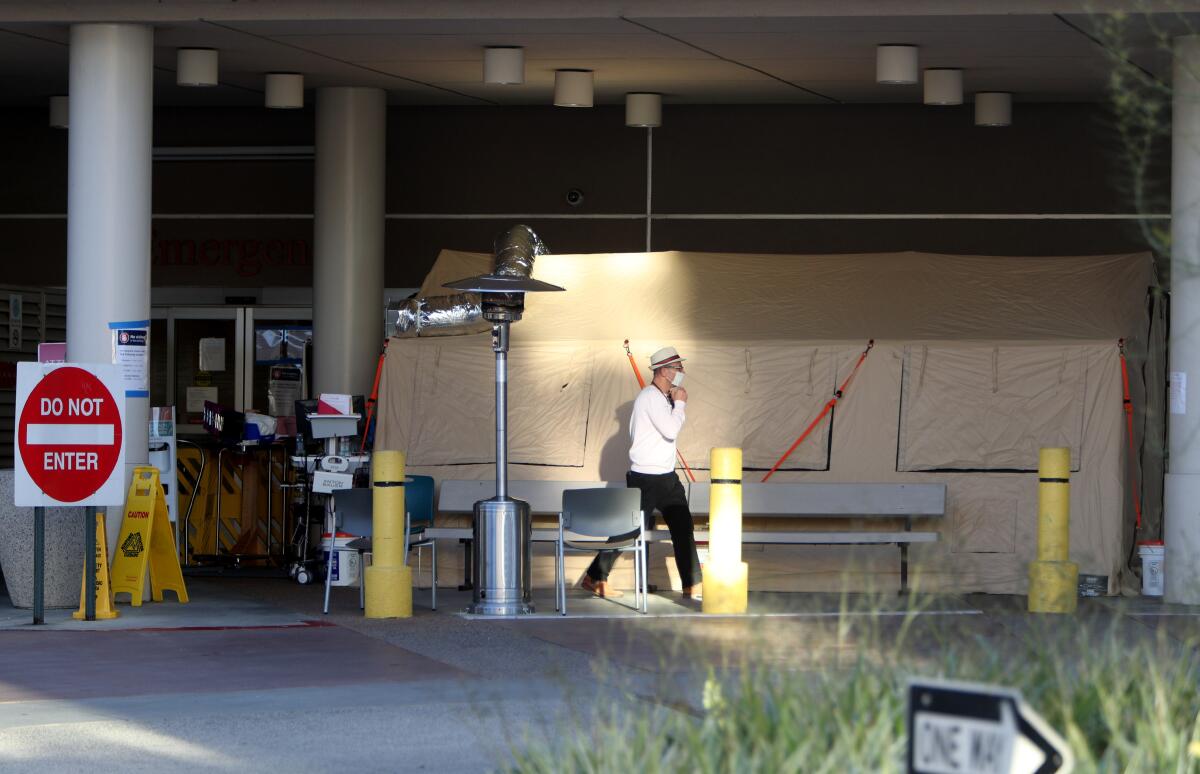With local coronavirus cases rising rapidly, Glendale extends state of emergency to April 30

- Share via
Glendale’s local state of emergency has been extended until April 30, as the local number of confirmed cases of the novel coronavirus continues to rise.
The city now has 29 cases of the virus that causes COVID-19, up from 12 reported at the end of last week, and recently saw its first death as a result of the outbreak, according to the L.A. County Department of Public Health.
On Tuesday, City Council members voted unanimously to extend the period set to expire March 31, amid a meeting where scores of tenants voiced concerns about whether emergency eviction protections would cover them for the next month.
A halt on evictions for those affected by the virus will remain in place, along with all of the city’s emergency orders. That includes the closure of nonessential retail businesses, public facilities and hiking trails, a blanket ban on residential rent increases, the suspension of some street-sweeping restrictions and free rides on the local bus line.
Gatherings of more than 10 people in close quarters are also prohibited.
Glendale’s emergency period now extends beyond Los Angeles County’s, which is set to expire April 19.
Aligning the end date with the end of the month was done to create a more consistent cycle and reduce confusion, according to Mayor Ara Najarian.
The date “could very well be amended again,” Najarian said. “That depends on how the number of cases either grows or becomes controlled.”
Across the county, there have been at least 1,465 cases and 26 deaths tied to the virus.
On March 16, Glendale declared a local state of emergency just hours after a local hospital confirmed the city’s first case of the virus. Since then, the number of confirmed local cases has risen steadily, adding to a rapidly rising county toll.
Since then, the city has followed the state and county’s lead, implementing social-distancing requirements, including a state mandate that requires residents to stay home except for essential needs.
Najarian said he doesn’t think all local residents are taking the increasingly stringent restrictions seriously enough, adding that he thinks the next seven days will be critical in terms of whether the area can contain the virus or see a large spike.
“It’s not like the German bombing of London, where everyone congregates together. It’s a different attack that we’re under,” he said. “Each and every one of us could be a carrier, and many people just don’t get it.”
The city is currently weighing whether to further restrict access to parks, he added.

